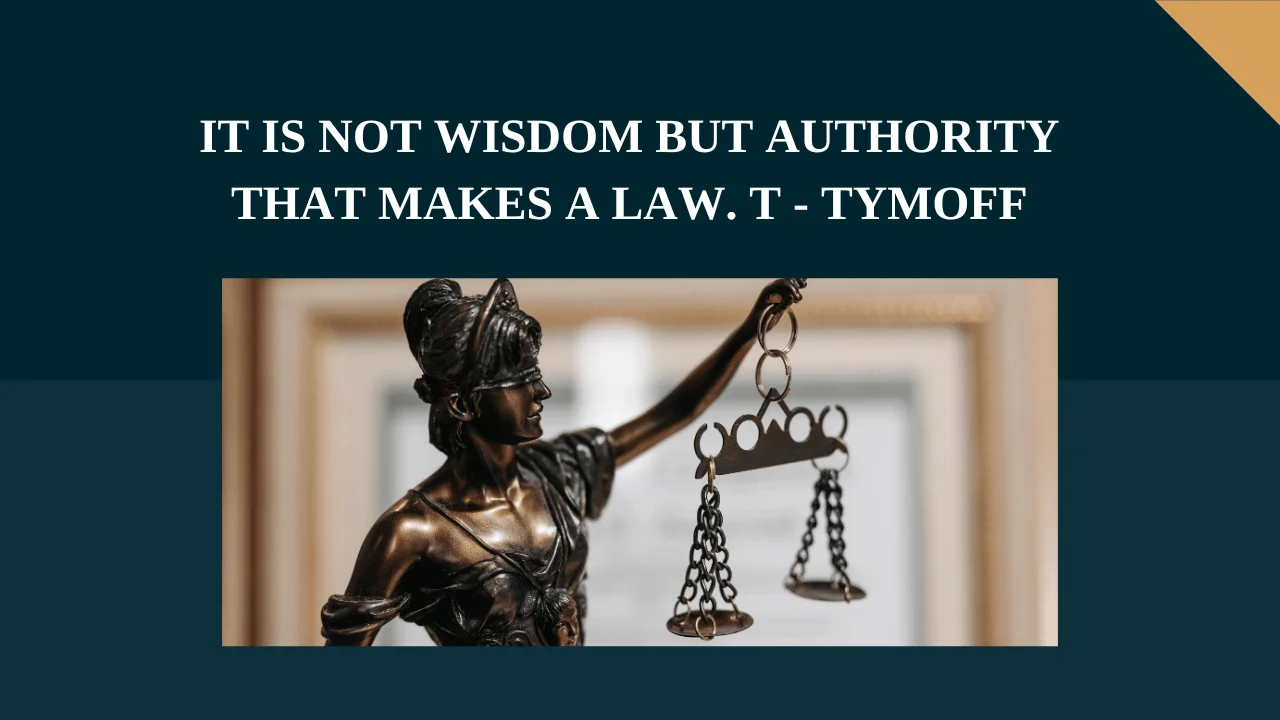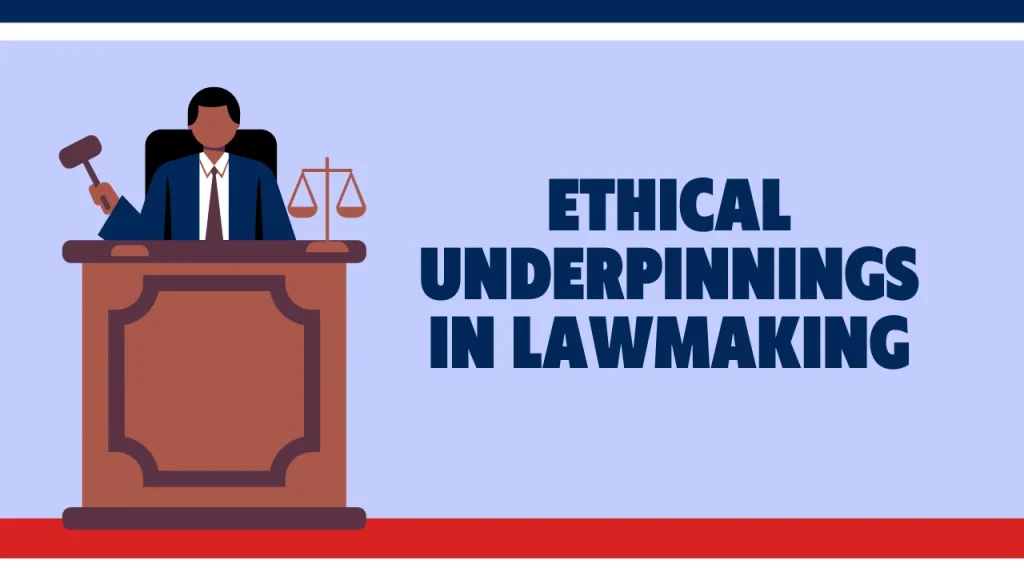It is Not Wisdom but Authority That Makes a Law. T – Tymoff

In an era where legal systems shape the backbone of society, the adage , “It is Not Wisdom but Authority That Makes a Law. T – Tymoff,” beckons a pivotal exploration into the dynamics between authority and wisdom in lawmaking. This statement not only challenges the foundational beliefs of jurisprudence but also ignites a discourse on the essence of laws within governance systems. Tymoff’s perspective underlines a critical reflection on the mechanisms of legislative processes, urging a reconsideration of the role that power and authority play over wisdom and ethical judgment.
Contents
Understanding Tymoff’s Assertion
Before delving deeper, it’s crucial to grasp the essence of what Tymoff brings to the discussion table. Tymoff’s assertion suggests a paradigm shift in understanding how laws are formulated, highlighting the dominance of authority over wisdom in the legislative process. This viewpoint does not diminish the importance of wisdom but emphasizes that the legitimacy and enforcement of laws are primarily functions of authority.
Wisdom and Authority
This segment underscores the interplay between the innate wisdom that ideally should underpin laws and the authority that enacts and enforces them. Tymoff’s insight invites us to ponder whether laws derive their legitimacy more from the ethical and moral righteousness they embody or the power wielded by governing bodies.
Laws and Authority
Exploring the legitimacy of laws through the lens of authority reveals how legal frameworks often mirror the dictates of power rather than the collective wisdom of society. This notion challenges the traditional view that laws are just reflections of societal ethics and morality.
Ethical Underpinnings in Lawmaking

The ethical considerations in the creation of laws are pivotal. However, Tymoff suggests that despite the moral and ethical groundwork of laws, their ultimate enactment and enforcement lie within the realm of authority, raising questions about the balance between ethical imperatives and authoritative mandates in lawmaking.
When dealing with legal issues, it’s essential to have authoritative support. For those facing dog bite lawsuits in Port St. Lucie, seeking professional legal advice is crucial. To ensure your rights are protected and you receive the best possible representation, visit the experts at Bengal Law.
Power Dynamics in Legislative Process
This subheading delves into how authority influences the legislative process, often overshadowing wisdom and ethical judgment. The role of power dynamics in shaping laws underscores a critical examination of how governing bodies exercise their authority in the enactment of laws.
Wisdom and Authority in Laws
The discourse initiated by Tymoff’s statement leads us to scrutinize the balance necessary between wisdom and authority for the creation of equitable and just laws. Achieving this balance is fundamental to ensuring that laws serve the public interest while being enforceable.
Authority Versus Moral Righteousness
A critical examination of how authority and moral righteousness intersect in laws reveals a complex landscape where the enforcement of laws may not always align with ethical standards. This raises important questions about the moral compass guiding lawmaking processes.
Representative Lawmaking and Public Interest
The essence of democracy lies in laws that reflect the collective wisdom and interests of society. This section explores how authority can be wielded to ensure laws are representative of public interest, bridging the gap between governance and the governed.
Tools of Governance and Authority
Governing bodies utilize various tools of governance to exercise their authority. Understanding these tools is crucial in assessing how laws are formulated, amended, and enforced, highlighting the instrumental role of authority in legal governance.
Reflection on Lawmaking Processes
Reflecting on the lawmaking process through the prism of Tymoff’s assertion encourages a reevaluation of how laws come to be. It prompts a dialogue on improving legislative processes to ensure they are grounded in both wisdom and authority, catering to the evolving needs of society.
Implications for Legal and Governance Systems
Tymoff’s perspective is not merely an academic exercise but has real-world implications for how legal and governance systems operate. It challenges policymakers, legal practitioners, and society at large to reflect on the nature of laws and their enactment, fostering a more nuanced understanding of the interplay between authority and wisdom.
Nature of Legal Legitimacy
Investigating the nature of legal legitimacy through Tymoff’s lens compels us to question the foundational bases upon which laws are established. It highlights the need for laws to balance the authority of those who enforce them with the wisdom of societal values.
Foundations of Legal Systems
The foundations upon which legal systems are built play a critical role in shaping societal norms and behaviors. This discussion emphasizes the importance of constructing legal frameworks that are both authoritative and reflective of collective wisdom.
Equitable Law Enforcement
The enforcement of laws equitably is paramount in ensuring justice. This segment explores how authority can be used to achieve fair enforcement, ensuring that laws do not disproportionately impact certain groups over others.
Authority in Democratic Societies
In democratic societies, the exercise of authority in lawmaking must be balanced with the principles of democracy. This part examines how authority, when appropriately exercised, can enhance democratic values by creating laws that reflect the will and wisdom of the people.
Must Read: Ellen Heidingsfelder: Age, Family, and Bio
Final Words
It is Not Wisdom but Authority That Makes a Law. T – Tymoff, serves as a profound starting point for a deeper exploration into the essence of legal systems and governance. It challenges us to reconsider the dynamics between wisdom and authority in the creation, enactment, and enforcement of laws. By critically examining these dynamics, we can strive towards a legal and governance framework that truly embodies the principles of justice, equity, and democracy, ensuring that laws are not just tools of authority but reflections of collective wisdom and moral righteousness. This discourse not only enriches our understanding of the legal landscape but also encourages a more inclusive and reflective approach to lawmaking, one that balances the scales of authority and wisdom for the betterment of society.





